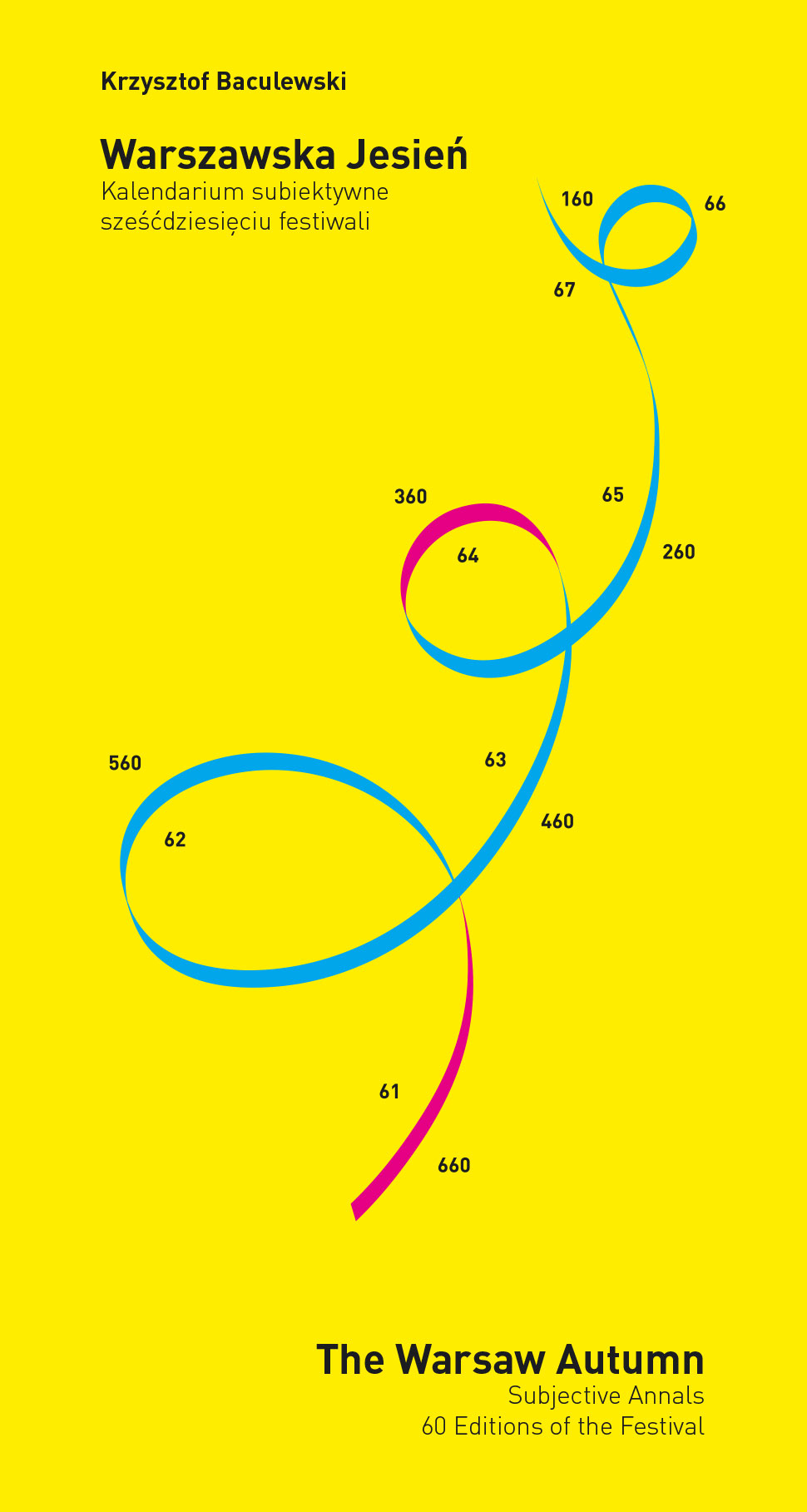
Krzysztof Baculewski "Subjective Annals 60 Editions of the Festival"
That year's 'Warsaw Autumn' was preceded by a curious event, unprecedented in the history of the Festival: on the Sunday before the inaugural Friday Llorenç Barber gave a concert for church bells Vox clamans in Warsaw's Old Town. Mobile phone communication made it possible to synchronise the individual bell-ringers. As a witness to this event, I can claim that it was memorable as something undoubtedly exceptional and original, even though the sound of bells in itself is nothing new or original. However, the combination of rhythms, pitches, order of entry, space - all this was unquestionably new.
The 40th 'Warsaw Autumn' began with a concert by the Warsaw Philharmonic Orchestra under Jan Krenz, featuring music by the grand old masters of the Festival: the Cello Concerto by Witold Lutosławski (sol. Andrzej Bauer), Symphony No. 3 by Tadeusz Baird and Episodes by Kazimierz Serocki; the concert ended with the music of Olivier Messiaen. This was an allusion to the first composition played at the 1st 'Warsaw Autumn' (Les O randes oubliées), but this time the music was much more momentous: Et exspecto resurrectionem mortuorum. The jubilee edition closed with Krzysztof Penderecki's Symphony No. 5, preceded by Lidia Zielińska's postmodernist Fiction and the first performance of Wojciech Kilar's Piano Concerto. One of the concerts took the form of a piano 'festival': four piano concertos were performed, Zygmunt Krauze played his own Concerto No. 2, Paweł Kubica - ...quasi una fantasia... by György Kurtág, Ewa Pobłocka - the Piano Concerto by Paweł Mykietyn, and Janusz Olejniczak - Valse boston by Giya Kancheli. ere was also a marathon of electroacoustic music to celebrate the 40th anniversary of the Experimental Studio of Polish Radio. One should also note the presence of Olga Szwajgier (soprano), Tomasz Strahl (cello), the Loos ensemble, Steve Reich & Musicians with a monographic Steve Reich programme (the complete Drumming, Music for Mallet Instruments and Organ and Music for 18 Musicians), as well as the compositional debut of Michał Talma-Sutt.
As part of the Festival's jubilee celebrations, the programme book carried 118 photographs from years past at the front, and, in the middle, a number of drawings illustrating the Erotics by Bronius Kutavičius, and A Small Lexicon of Contemporary French Music by the present writer.